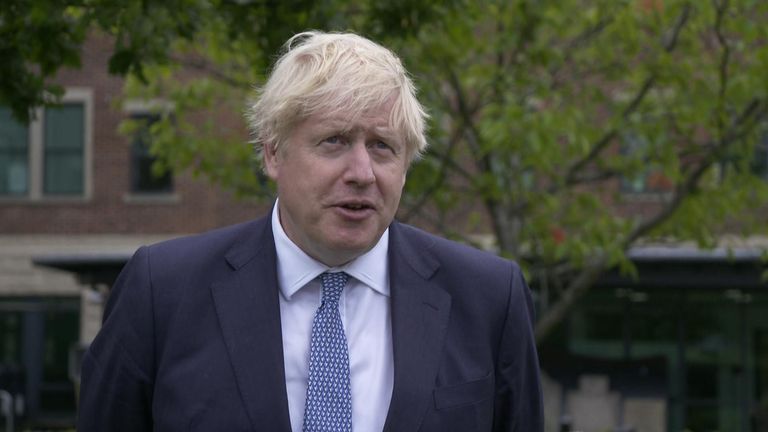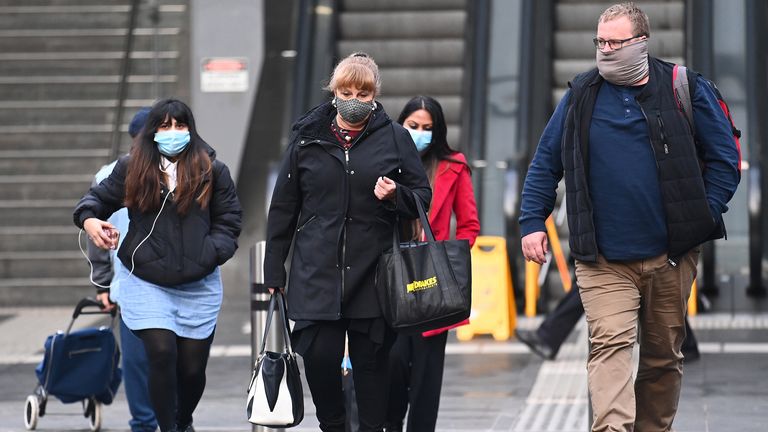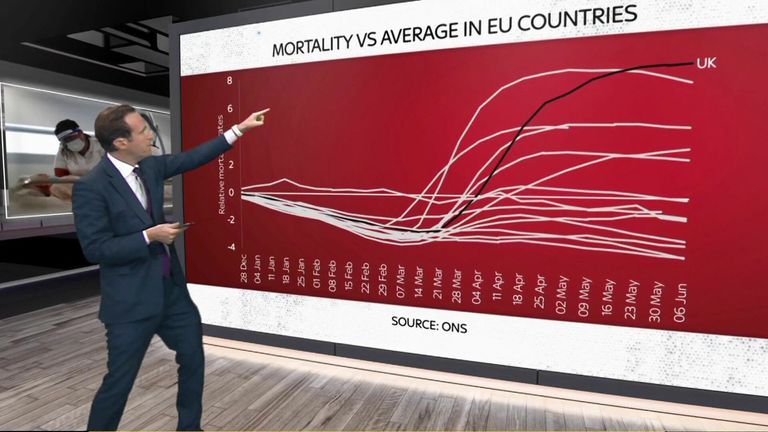Separate households are banned from meeting indoors from today in Greater Manchester, East Lancashire and parts of West Yorkshire after a rise in coronavirus cases.
The news comes after the UK saw its highest daily total of COVID-19 cases for more than a month.
Prime Minister Boris Johnson warned the virus was “bubbling up” in up to 30 areas across the UK.
The order covers:
- All of Greater Manchester: Bolton, Bury, Manchester, Oldham, Rochdale, Salford, Stockport, Tameside, Trafford and Wigan
- East Lancashire: Pendle, Hyndburn, Burnley, Rossendale and Blackburn with Darwen
- West Yorkshire: Bradford, Calderdale and Kirklees
- The city of Leicester, which saw the UK’s first local lockdown
It means people in these areas will not be permitted to mix with other households (apart from those in their support bubbles) in private homes or gardens.
Some exemptions will be put in place, including for the vulnerable.
The government will sign new regulations to make these changes legally enforceable.
The regulations will give local authorities and police forces the powers to enforce these restrictions and more details on these will be set out when the regulations are published.
Households may go to hospitality, for instance bars and pubs, but new guidance will make clear that two households should not go to hospitality together.
Health Secretary Matt Hancock said “households gathering and not abiding by the social distancing rules” was a reason for the decision, which had been taken in order to “keep the country safe”.
He said: “We take this action with a heavy heart but unfortunately it’s necessary because we’ve seen that households meeting up and a lack of social distancing is one of the causes of this rising rate of coronavirus and we’ll do whatever is necessary to keep the country safe.”
Mr Hancock added: “We’re constantly vigilant and we’ve been looking at the data, and unfortunately we’ve seen across parts of northern England an increase in the number of cases of coronavirus.”
Labour leader Sir Keir Starmer criticised the way the announcement was made, branding it a “new low for the government’s communications”.
“No one would argue with putting in place local action to reduce the transmission of coronavirus,” he tweeted.
“But announcing measures affecting potentially millions of people late at night on Twitter is a new low for the government’s communications during this crisis.
“When the government ended the daily press conferences, they said they would hold them for “significant announcements”, including local lockdowns. It’s hard to imagine what could be more significant than this.
“For all the bluster, government has failed to deliver a functioning track and trace system that would spot local flare ups like these.”
Out of the 19 local authority areas affected, the rate of COVID-19 in the seven days to 27 July has gone up in 13 of them, with 1,536 cases recorded in the space of a week.
Leicester’s local lockdown was imposed at the end of June, but Labour’s MPs for the area – Liz Kendall, Jonathan Ashworth and Claudia Webbe – said on Twitter that some restrictions there will now be lifted.
“The great news is our pubs, cafes, bars & restaurants can re-open and people can go on holiday with their own household,” Ms Kendall tweeted.
“But leisure centres, gyms & pools still closed, and no meeting up with other households indoors.”
The Department of Health later confirmed the restrictions will be eased from Monday.
Ms Webbe said Eid celebrations can take place at places of worship – provided social distancing is maintained – but not in private homes.
It has also been announced that from Saturday Luton will be brought in line with the rest of the country after “significant progress”.
Greater Manchester mayor Andy Burnham said there had been a “marked change” in the spread of the virus across the area.
“We have gone from a falling rate of cases in nearly all of our boroughs last week to a rising rate in nine out of 10 affecting communities across a much wider geography,” he said.
Mr Burnham said he agreed with the health secretary “that it is right to act on the precautionary principle and introduce modest measures now to bring down the rate of new infections”.
He added: “I ask all Greater Manchester residents – young and old alike – to protect each other by observing these new requirements. They will be reviewed weekly; meaning the more we stick to them, the quicker they will be removed.”



